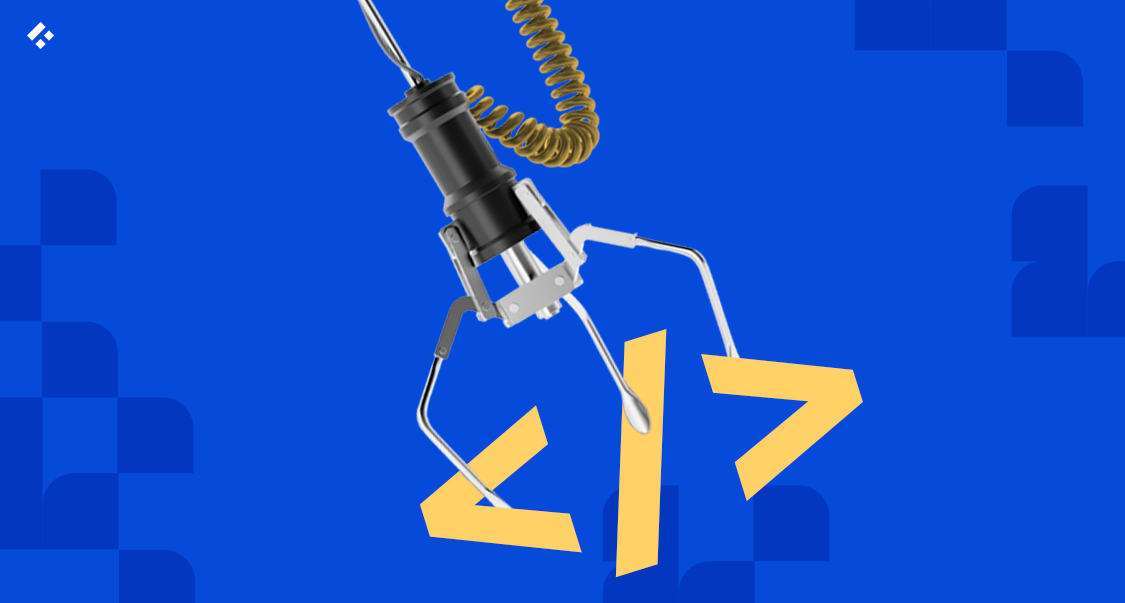Despite the stereotypes, even software engineers need soft skills to perform their job well.
While technical skills determine the development of your software product, its quality is often a result of how well your software development team works together.
To play nicely, your team members need more than just their left brain. They need certain interpersonal attributes and personality traits to strengthen the integrity of the team.
To learn more about the soft skills you should look out for in a software engineer, stay tuned!
Trio goes beyond providing exceptional software development insights; we connect you with the best South American developers. Discover our Argentinean developers, Chilean developers, and Brazilian developers for your outsourcing needs
Are you ready to start your development project?
We have the developers you need to take your development project in the right direction.
Companies are proven to grow their business faster with Trio.
1. Communication
Nearly every industry can benefit from having team members or employees who are good communicators.
Communication skills go a long way, no matter the profession.
The software engineer role often involves working alone for long periods of time.
But the more complex a project is, the more people will be working on it. At some point, communication always comes into the mix.
Effective communication entails that everyone is on the same page as far as deadlines, project requirements, expectations, and so forth.
Due to the nature of the role, it is hard to spot an effective communicator in a vacuum when you set out to hire software engineers.
Much of your judgment in this regard should be reserved for your initial interview, rather than the technical interview or coding challenges.
Assess that the candidate speaks clearly and confidently. But it’s just as important that the candidate listens well too.
2. Empathy / Emotional Intelligence
Though software engineers spend a lot of time with machines, they still should have basic empathy.
Empathy defines the capacity of an individual to understand or feel what another individual is experiencing at any given time.

Software engineer soft skills start and end with the fundamentals of human interaction. And emotional intelligence is pretty fundamental to any human interaction.
Especially in a high-stakes environment like software development, developers need to be able to understand what those around them are feeling.
This could mean motivating fellow developers after noticing a collective sigh or shutting down an individual developer’s well-intentioned idea with care.
Empathy also extends to understanding the perspective of a non-developer, such as a business analyst or quality assurance engineer.
At all times, developers are responsible for understanding the end-users themselves, as changing requirements are the norm in Agile development.
In fact, design thinking is an iterative process many developers employ to better empathize with and understand their users.
3. Self-Awareness
In general, self-awareness is an important soft skill for all human beings to have.
Healthy self-awareness in a developer looks like a software engineer being confident in the things they know well, but humble when they have an opportunity to learn.
Secure software engineers are the most likely to grow professionally because they don’t let their insecurities hold them back.
They’re always willing to identify the areas they need to improve and then do the work to learn those skills.
Similarly, confidence is important as well. You want a developer who speaks their mind, who also isn’t going to break when constructive criticism enters the room.
4. Patience
Frustration isn’t hard to come by on a software development team.
Slamming a fist or head on the table is not unheard of once a back-end developer discovers a sly bug has led to the routine underperformance of your business website.
In spite of the specificity of that example, developers are faced with these kinds of frustrations every day.
These circumstances call for a practiced patience that only select software engineers have handy.
People usually make their best decisions when they’re in a neutral state. And having a calm demeanor when frustrations arise lends to optimal software development at the end of the day.
Look for developers who give themselves compassion. When they find an issue, they address it and move on.
5. Open-Mindedness
Businesses scale on creativity. The worst bottleneck any business can face is failure to launch, where your company is stuck in one place because you won’t accept new ideas.
In the software industry specifically, only a decade ago, the waterfall method of linear development was a downright classic in software development.
Now, developers have moved on to the Agile methodology, which serves the interests of end-users more than the waterfall model ever could.
The point is, change can be positive. You want someone on your team who is willing to take chances with their code and, hopefully, discover new horizons as a result.
6. Problem-Solving / Critical Thinking
Problem-solving and critical thinking skills are paramount to software development as a whole.
Out of every other soft skill, this one, in particular, will have the greatest effect on how your developer tackles complex issues and to what extent they’re thinking outside the box.
In computer science, an algorithm, by definition, is a set of rules or procedures that developers deploy to solve a certain problem.
Usually, this process is applied to machines.
However, you should be looking for developers who look at every problem inside and outside of coding as a highly technical algorithm with many branches for possible success.
In addition, this developer should leave their ego at the door and be keen on encouraging other developers to voice their ideas too.
7. Time Management
Time management is a critical soft skill when it comes to software development.
Software engineers have stakeholders on either end of the project.
Not only do they have to report to project managers, business managers, and other officiating associates, but they are also responsible for delivering a satisfactory product to the client in a timely manner.
What’s key to finding a developer with good time management skills is paying attention to how accurate a potential developer’s estimates are.
If they tell you they can complete a task in a certain amount of time, do they stick to their word?
8. Collaboration / Teamwork
Knowing how to collaborate on a team goes hand-in-hand with having excellent communication skills.

Software development has always been a team sport. Even if a developer is working alone, they still have to communicate with designers, project managers, customers, and more.
But working on a team is more than merely submitting work to a repository.
It means relying on several other skills — like time management, communication, and empathy — so your whole team can move like a well-oiled machine.
9. Accountability
Mistakes happen. But you have to own them.
A big part of professional development in any industry is acknowledging your past mistakes and moving forward with the new information you’ve just gained from the blunder.
Know better, do better, right? Well, you can’t do better without admitting you’ve done wrong.
When a developer takes ownership of their mistakes, the rest of the team can take advantage of that example to identify similar mistakes later on.
It’s important to learn what went wrong and how to avoid it in the future.
10. Adaptability
Adaptability breeds self-learning. In the tech world, you’ll see new tools and gizmos being developed and adopted every day.
A developer must stay up-to-date with the latest trends that could potentially optimize their final product.
But in reality, the average human is scared to try new things, even if they could be beneficial overall.
The most qualified developers, on the other hand, are eager to do what’s best for the software, regardless of their hesitation.
This requires a developer who utilizes a model of continuous learning in their everyday work and isn’t afraid to get uncomfortable.

Elevate Your Team with Trio AI Talent
Empower Your Projects with Trio’s Elite Tech Teams
Conclusion
Finding qualified developers is hard enough. But now you have to think about more than just whether or not a program runs successfully.
Still, these 10 soft skills for software engineers will make a big difference in what your new hire can bring to the table.
Often, the difference between a good developer and a great developer relies heavily on the soft skills established here.
If you’re having trouble spotting these soft skills during your hiring process, consider enlisting Trio for help.
Trio hires qualified, experienced developers who have been vetted with the rubric above in mind.
Since Trio does the hiring, you don’t have to lift a finger. Trio developers service your business via prompt request, whenever and however you need them.
Stop searching and start developing with Trio now!
Related Reading: What is Full Stack Development?





